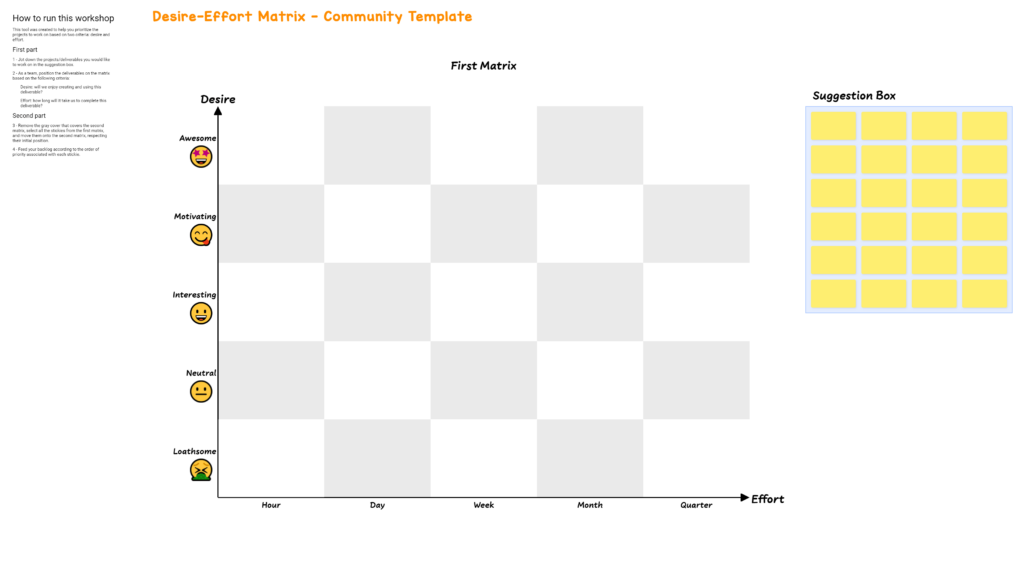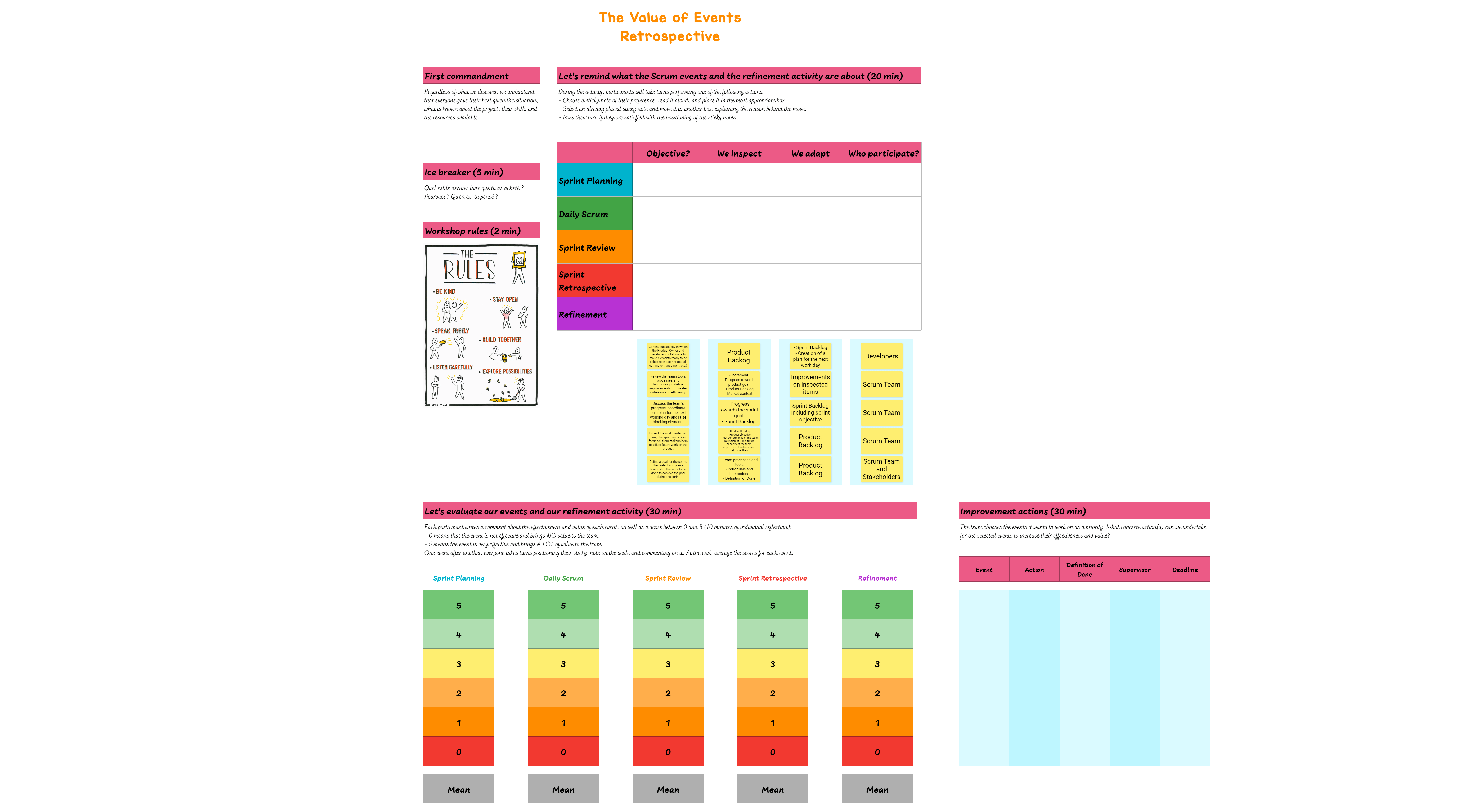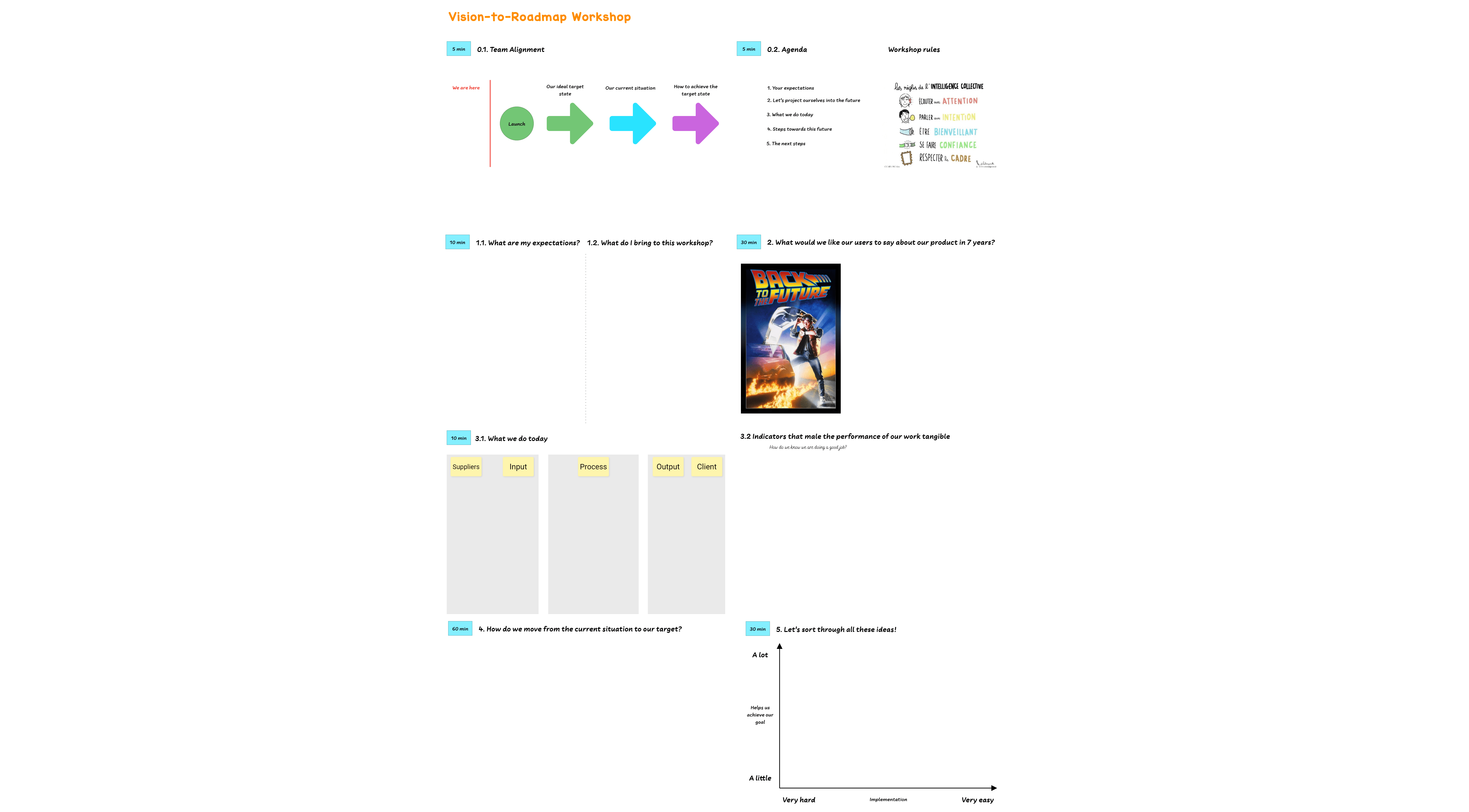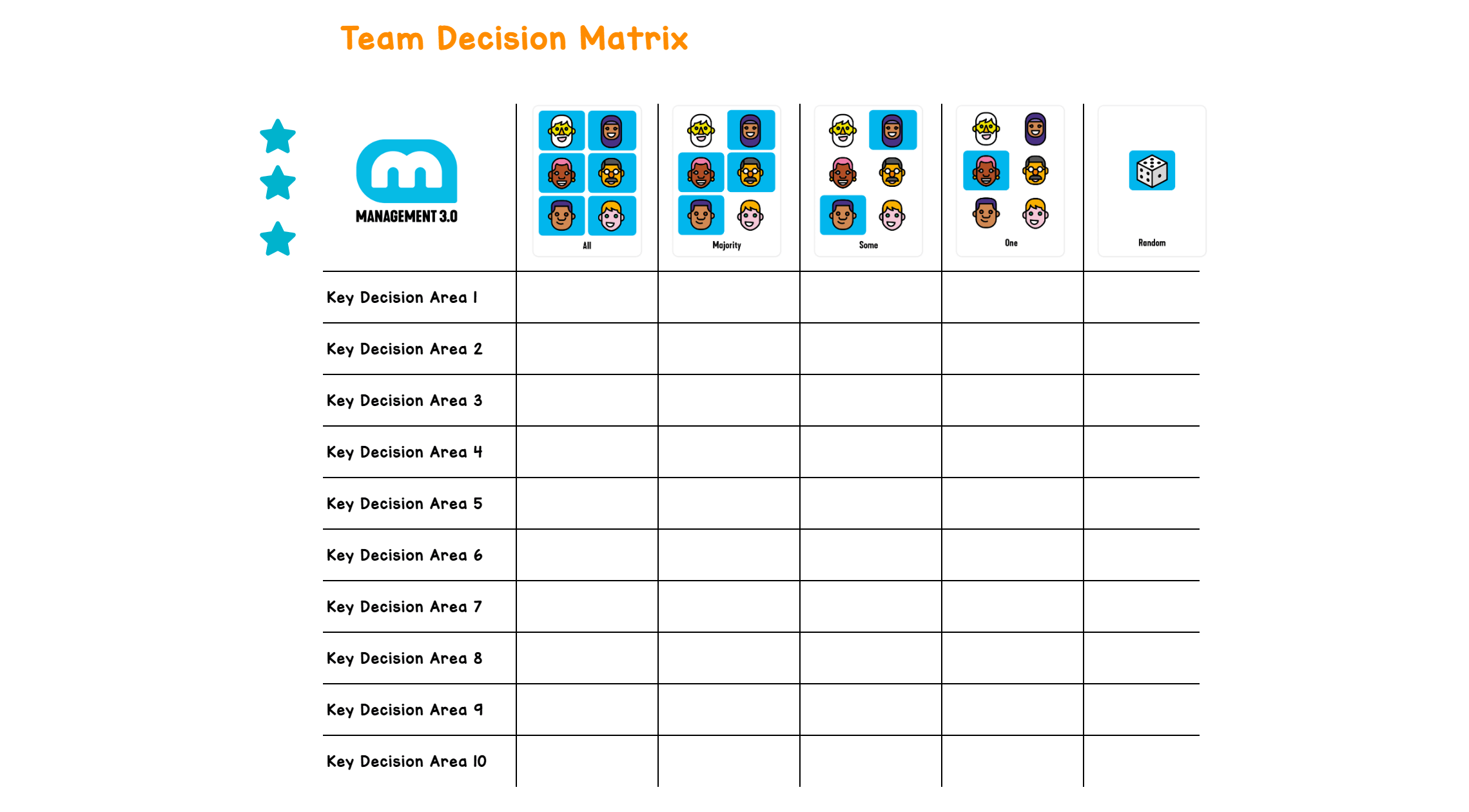Description of this workshop
The Desire-Effort Matrix aims to consider the level of interest and willingness of team members to engage in projects or deliverables. It is a workshop that is particularly useful for associations or communities of practice where participants join voluntarily.
The workshop involves assessing various projects and deliverables based on two criteria:
- Appetence takes into consideration the team's enjoyment and pride in handling a project or a specific deliverable.
- Effort evaluates the estimated duration and means required to complete the deliverable.
These criteria are relative to each other and are used to determine the overall feasibility of a particular project or deliverable.
How to run the Desire-Effort Matrix workshop
The workshop takes place in 4 stages:
Step 1: List projects and deliverables
To begin, list the projects or deliverables you would possibly like to work on and position them in the "Idea box" area.
Step 2: Position ideas on the matrix
As a team, you should position the sticky notes in a matrix based on their level of interest and estimated completion time. The level of interest is relative, so it's best to start with the proposition that generates the most interest and place the other propositions around it accordingly.
Additionally, you can allow each team member to move the proposal in turn and let others react if they are not in agreement. The team should prioritize the level of interest first, followed by the estimated completion time.
Step 3: Move stickies from the first matrix to the second one
Once you have positioned all the potential projects and deliverables, remove the gray cover that covers the second matrix, select all the stickies from the first matrix, and move them onto the second matrix, respecting their initial position.
Step 4: Feed your backlog
Finally, populate your backlog according to the priority order associated with each stickie. You should only focus on projects and deliverables with a priority 1 or even 2; other projects or deliverables represent too much work compared to the team's desire to handle them.
This tool is a joint creation of Elyezer DUCROS and Yohan VARONA, agile coaches at scale and agile practice leaders at Klanik.







